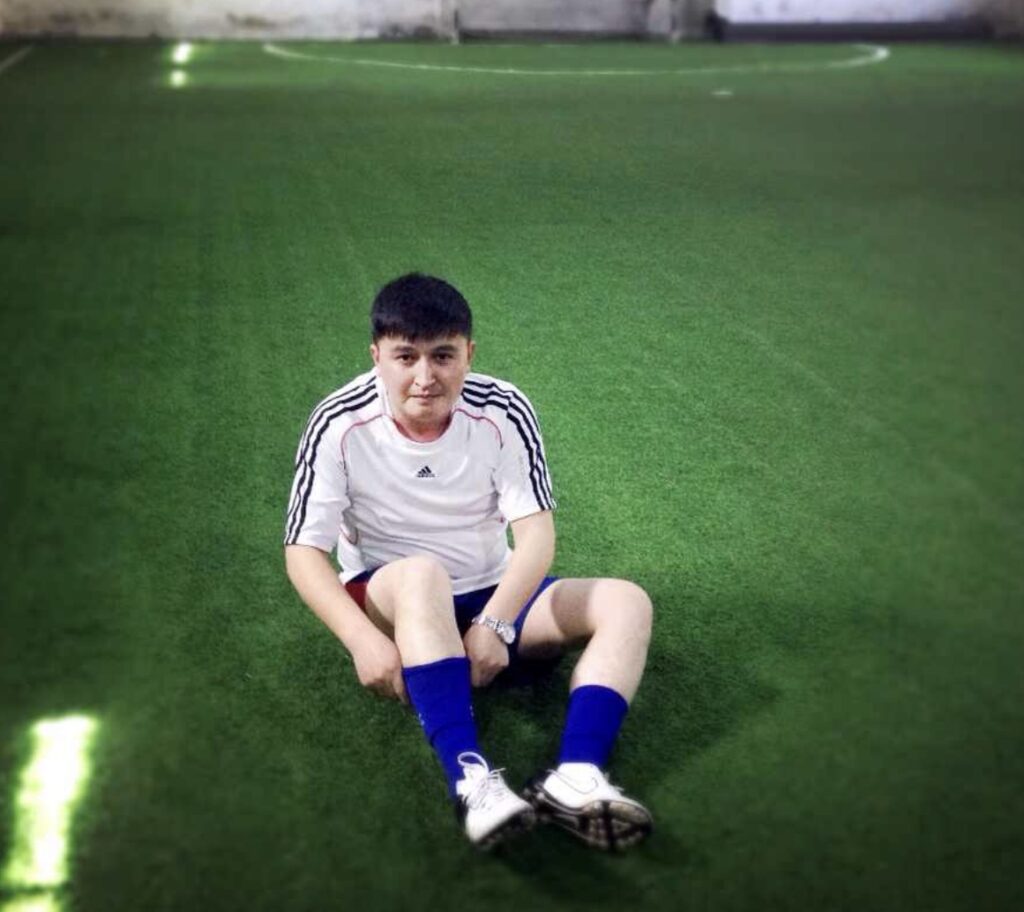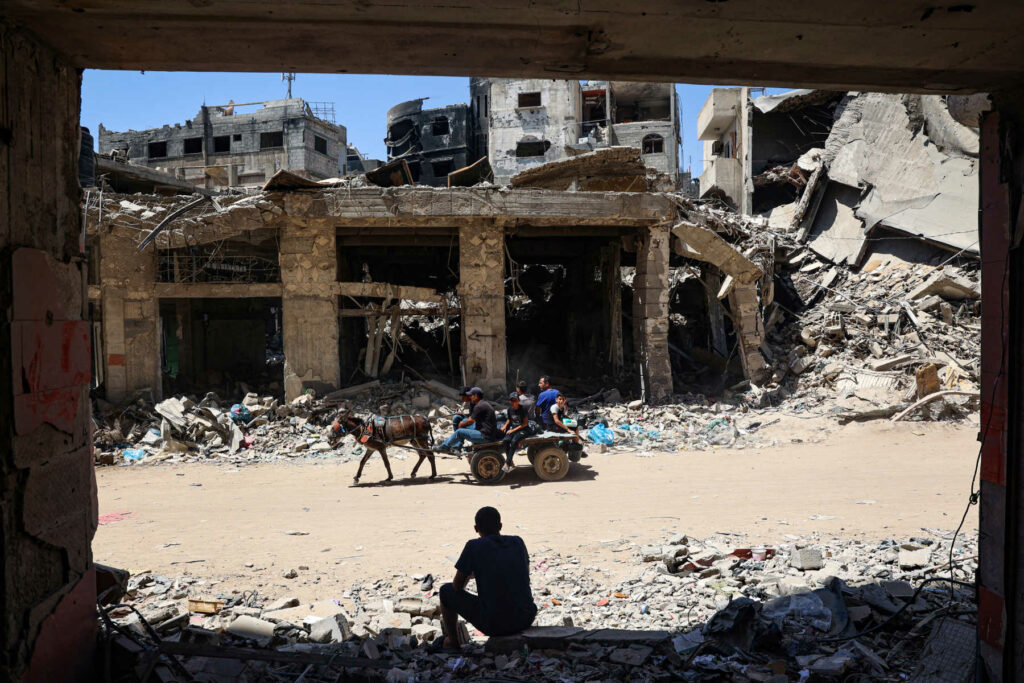Rayhan Asat is a human rights lawyer and scholar at Harvard Law School and a senior fellow with the Strategic Litigation Project at the Atlantic Council. She has written for The Wall Street Journal, Foreign Policy, New Statesman and other publications.
As a Uyghur human rights lawyer forced to live in exile, I see Xinjiang everywhere. But nowhere more starkly than in places like Gaza.
The Palestinian mother watching a bulldozer tear through her house reminds me of every Uyghur mother whose home was invaded by Chinese forces. The rubble of schools and mosques destroyed in Gaza takes me back to my homeland, where the oldest shrines have been leveled, and our teachers handed life sentences. The surveillance system China tested against the Uyghurs has been exported to the streets of occupied Hebron. As Israeli settlers flood the West Bank with the full support of Israel's government, I'm reminded of the millions of Han people that China brought into my homeland, where they receive special privileges in an apartheid system the world has ignored for decades.
Over the years, I've been heartened to see the plight of my Uyghur community championed fiercely by people from all walks of life. But I have been equally dismayed by the deafening silence from so many quarters. For nearly a decade, my people have languished in China's internment camps, enduring unimaginable suffering. Like so many other Uyghurs, I have tirelessly sought ways to keep the flame of our cause alive in public discourse, engaging with diverse communities for help. The Jewish community has emerged as an especially potent ally, owing to an intimate understanding of ethno-religious persecution. The U.S. Holocaust Memorial Museum has made China's persecution of the Uyghur a signature issue. I have witnessed firsthand the deep well of compassion and fierce commitment that feeds Jewish advocacy for justice.
As a Uyghur human rights lawyer forced to live in exile, I see Xinjiang everywhere. But nowhere more starkly than in places like Gaza.
- Rayhan Asat
After Hamas's atrocities on October 7 and the year of Israel's war crimes in Gaza that followed, the world reacted with the speed such horrors require. Streets in practically every country around the world were filled with protests demanding a cease-fire, with diplomats from many countries working behind the scenes to push for the release of hostages in Gaza. I bore witness to the pain of many Israelis, feeling it acutely as I continued to grapple with my own loss.

My brother, Ekpar Asat, a prominent tech entrepreneur and philanthropist, has been held captive in China for eight long years. The anguish of the families of Israeli hostages in Gaza resonates deeply with me, as I have not known true rest or joy during all these years of separation. I carry a profound sense of guilt with every meal I have, the fresh air I breathe and the freedom I enjoy, even as I fight for Ekpar's freedom every day. To dismiss the suffering of hostage families is not only a profound betrayal of our shared human values but also a grave injustice to the unimaginable agony these families endure with every passing moment of uncertainty and fear.
But the suffering of Palestinians reverberates with a familiar pain, too. The dehumanization of the Palestinian people and the collective punishment they endure from Israel's war have shattered the very fabric of their society, much like what China has inflicted upon my people. The parallels are stark, and they underscore the universal cruelty of oppression wherever it takes root.

In both Gaza and Xinjiang, the oppressors hide behind the excuse of combating extremism to justify their decades-long pursuit of domination. The internment camps in Xinjiang are, in their very nature, extrajudicial camps that hold millions from indefinitely to long imprisonment. Similarly, the Israeli government holds thousands of Palestinians under indefinite administrative detention. The self-declared fight against terrorism is becoming a pretext for many states to target their disfavored population, in direct violation of international law that is supposed to prevent the collective punishment of civilians.
The dehumanization of Palestinians and the collective punishment they endure from Israel's war in Gaza have shattered the very fabric of their society, much like what China has inflicted upon my people.
- Rayhan Asat
In an era where political gaslighting is the order of the day, marginalized groups find themselves in a perpetual battle to validate their suffering, forced again and again to prove the plain facts of what's happening to them. While they struggle just to be seen, their oppressors enjoy the benefit of the doubt. State actors can far too easily muddy the facts with propaganda and disinformation. The Chinese government's cynical intervention in the International Court of Justice case against Israel's occupation, all while refusing to be held accountable by the same court for its atrocities, is particularly galling. But so is the U.S. government's eagerness to champion the Uyghur cause while using its veto at the U.N. Security Council to block any meaningful action on Gaza.
There's always the plain fact of power: the people at the bottom, politically and economically, stand no chance against the governments that have decided their lives are worthless. There has been blatant hypocrisy and double standards from the fractured global community, especially business leaders. Some who champion Gaza can't seem to spare a thought for the Uyghurs. Others who empathize deeply and campaign for the people of Xinjiang don't' seem able to extend that same empathy to the Palestinians. Despite the vocal support from numerous leaders in the Global South and others for the Palestinian cause, a troubling silence lingers in many parts of the world. This silence is all too familiar to me as the horrors in China's concentration camps have been met with a disheartening indifference from many corners of the world. I'm shocked by the complicity of many Global South leaders with China's atrocities in exchange for economic opportunities and deeply ashamed of many Muslim countries, in particular, for their inaction over Xinjiang. One day, in the not-so-distant future, when the world looks at the remains of Palestinian and Uyghur society, it will be forced to ask itself why it did not do more to help.
Israeli atrocities in Gaza, and the intentional blocking of humanitarian aid that has led to starvation and the spread of polio in the besieged territory, have sparked global outrage, especially among young people. However, this same level of outrage has not been directed toward China's systematic efforts to slowly eradicate the Uyghur people in its prison camps. Some argue that the differing reactions are due to America's direct support for Israel's war in Gaza, but victims do not suffer less because of the identity of their perpetrator. If human rights are truly universal, then what happens in Gaza and Xinjiang should equally outrage us all.





































